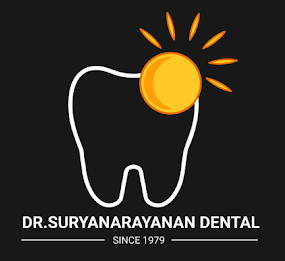General Dentistry
Composite/tooth coloured fillings
This is a technique which combines art and dentistry to prevent infection and to invisibly repair and protect damaged teeth or replace unesthetic or broken-down metallic fillings with restorations that mimic the look, feel and function of natural teeth
Here at our clinic, fillings are done under strict isolation approach to prevent any contamination and under a microscope setting when required.
Teeth cleaning and polishing
Scaling i.e., professional cleaning and polishing of teeth is the best way to prevent dental disease and keep your teeth at its healthiest best. Good oral hygiene routine, which consists of daily brushing and flossing is important. But even with meticulous brushing, some plaque and tartar may still remain in the mouth, especially in those hard-to-reach areas.
Regular scaling and polishing of teeth (Recommended once in 6 months) is vital to get rid of these deposits and prevent them from causing dental problems in the future.
When it comes to teeth, extraction is always the last resort. However, this procedure is sometimes necessary when dealing with severe decay, infection or a tooth with poor prognosis.
We know tooth extractions have a reputation for being stressful and scary but that’s not the experience you'll have at our office with our dentists with a vast experience.
Reasons for Tooth Extraction
- Severely decayed or infected teeth which cannot be treated by root canal
- To make space for orthodontic/ braces treatment
- Badly positioned teeth
- Broken teeth which cannot be restored
- Advanced gum disease that makes teeth loose
- Partially erupted or impacted wisdom teeth.
What’s Next? – Replacing A Tooth
Teeth when removed leave an empty space in the mouth which causes the neighboring teeth to shift and move into that space causing multiple issues like gaps and food lodgement, over eruption of opposing teeth, all of which leads to various problems in the remaining teeth.
There are a number of possibilities for those with a missing tooth. We will talk to you about the different tooth replacement options we offer and will work with you to decide on the most appropriate one for you.
Some of the options we may suggest include:
Dental implants: They are placed in the bone of the jaw to support a crown.
Bridges: These are “false teeth” that are fixed to your neighboring teeth.
Crowns and bridges are custom-made tooth replacements that are cemented onto teeth and stay firmly in place.
They look and feel natural so that you feel confident with a complete, functional smile.
Crowns are made of various materials and the one that is most suitable for you case is recommended. Some of the common materials used are :
Zirconia Full Contour crowns
Highly biocompatible crowns which maintain gum health in the long run and are also very aesthetic
Manufactured using CAD-CAM technology, they offer a precise fit and finish.
We use only TOSOH certified zirconia blanks which are of the purest quality without any adulteration
Impure zirconia blanks containing lead and other radioactive materials are available widely in the markets today and are used to make crowns, which cause various health hazards to the patients in the long run.
Porcelain Fused to Metal (PFM) crowns
These crowns are bilayered i.e made of metal as the inner layer which is fused to porcelain/ceramic as the outer layer.
These crowns are more affordable while still being visually pleasing
The disadvantages of these crowns include-
-Possible allergies: People who have metal allergies or are sensitive to metal may have an allergic reaction to PFM crowns
-Removes more natural tooth structure: In order to place a PFM crown, more of natural tooth structure must be removed to accommodate this type of crown.
Dentures are artificial teeth and gums that are created by your dentists to replace lost or removed natural teeth. Dentures can either be full or partial, meaning they can either replace all teeth on either the top or bottom jaw, or just a few that are missing. Regardless of what kind of dentures you may need, they will be custom designed to fit your mouth, and visually matched to your existing teeth.
Acrylic dentures can be made of different types of materials. Some of the materials and techniques we use include
- Lucitone denture
- Biofunctional prosthetic system (BPS denture)
Implant supported dentures
As the name seems to imply, these are dentures which are anchored by dental implants. Implant-supported dentures have a couple of different ways in which they can attach to increase stability and comfort, but should be cared for and treated like traditional dentures. It’s more common to have them done on the lower jaw.
Dentures come with certain disadvantages as follows and thus replacement of teeth with Dental implants is recommended:-
- Sometimes dentures slip around making it difficult to speak and eat.
- Certain foods cannot be eaten with dentures. Examples include caramel, apples and corn on the cob.
- There’s an increased risk of gum disease if food is trapped by the dentures.
- They frequently need replacement (every 3 to 6 years). Also, they’ll break if dropped, requiring replacement.
